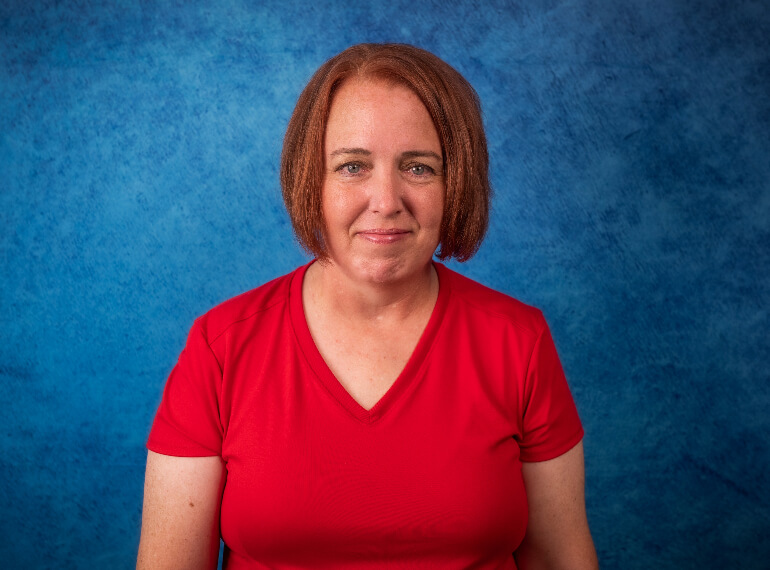Tiffany's Story

Stroke
Tiffany Saddler walked into her office and inquired of her human resources representative, "What side do you have a stroke on?"
"Her eyes widened as she directed me to a chair," Tiffany recounted. "It just progressed from there." Tiffany, a 46-year-old wife and mother of two with a passion for bargain shopping, can scarcely recall her journey to the hospital. Physicians at Texas Health Harris Methodist Hospital Fort Worth rushed to stabilize Tiffany. "My husband said they told him they didn't know if I would make it," she said.
She did survive, though, waking only after hearing her children speaking to her on the phone. The body she awoke to was not the same as the one that had taken her to work that day. "I had no use of my right side," she said. "I had expressive aphasia, so I couldn't articulate many words. When I could speak, I oddly sounded like I had different accents. Most of the time, I sounded like I had a thick Irish accent." The stroke also gave Tiffany trouble with balance and reduced strength and endurance.
Tiffany required specialized rehabilitative care to regain her lost strength and independence. She chose the Baylor Scott & White Institute for Rehabilitation (BSWIR) – Fort Worth's Day Neuro Program. "My husband chose it," she said. "I heard that this was one of the top places for rehab, so this is where I wanted to be." The Day Neuro Program at BSWIR – Fort Worth is a comprehensive day outpatient program that offers focused rehabilitation for individuals who have experienced a stroke, brain injury, or other neurological disorders.
The physician-led rehabilitation team at the facility collaborated with Tiffany on a treatment plan to help her achieve her objectives of walking and returning to her normal life. This required physical, occupational, and speech therapy. Physical therapy activities aimed to strengthen her body and increase her endurance and activity tolerance. Occupational therapy focused on refining her fine motor skills and completing household tasks such as cleaning, laundry and cooking. Speech therapy aided Tiffany in regaining control of her accent, helping her speak with confidence and understand those around her.
The journey to recovery would be challenging, but Tiffany had her family's love and support to motivate her. "Oh my gosh, they've been everything. If I didn't have them, I couldn't do it. My son helps me, my husband has done everything and has been so motivating," she said. "They've been really supportive."
While navigating the process of regaining strength, Tiffany discovered that among the various activities, she enjoyed yoga the most. “I really like doing yoga. I started with chair yoga, then had two therapists help me try standing yoga and worked up to only needing one therapist. I’m able to do downward dog,” she said. It was not long before she began to see more progress and then she hit a point where she knew she had turned a corner. “Probably when I was able to progress from the hemi-walker to the cane. I need the can less and less. Sometimes I forget to take it with me. That shows me I’m not really relying on it and am almost done with it,” she remarked.
She also made strides in addressing her other issues. “I’m not struggling with word-finding and my accent is back to my normal Texas accent,” she said. “I’ve gotten some function and movement back in my right arm, I can lift it almost over my head now. My balance, strength and endurance are far improved.”
Tiffany eagerly anticipates the next phase of her journey as she transitions from the Day Neuro Program to another outpatient program. When asked to describe her time with the Day Neuro Program, Tiffany did not hold back. "My god, life-changing," she declared. “I owe everything to the therapists here. Without them, I don’t know where I would be. I owe my whole life to them.”